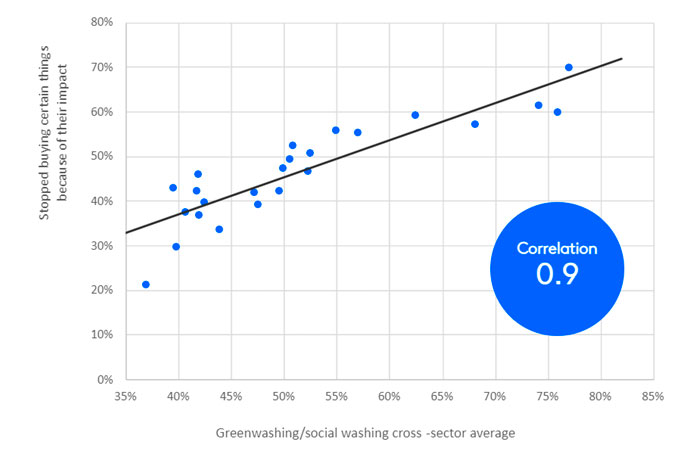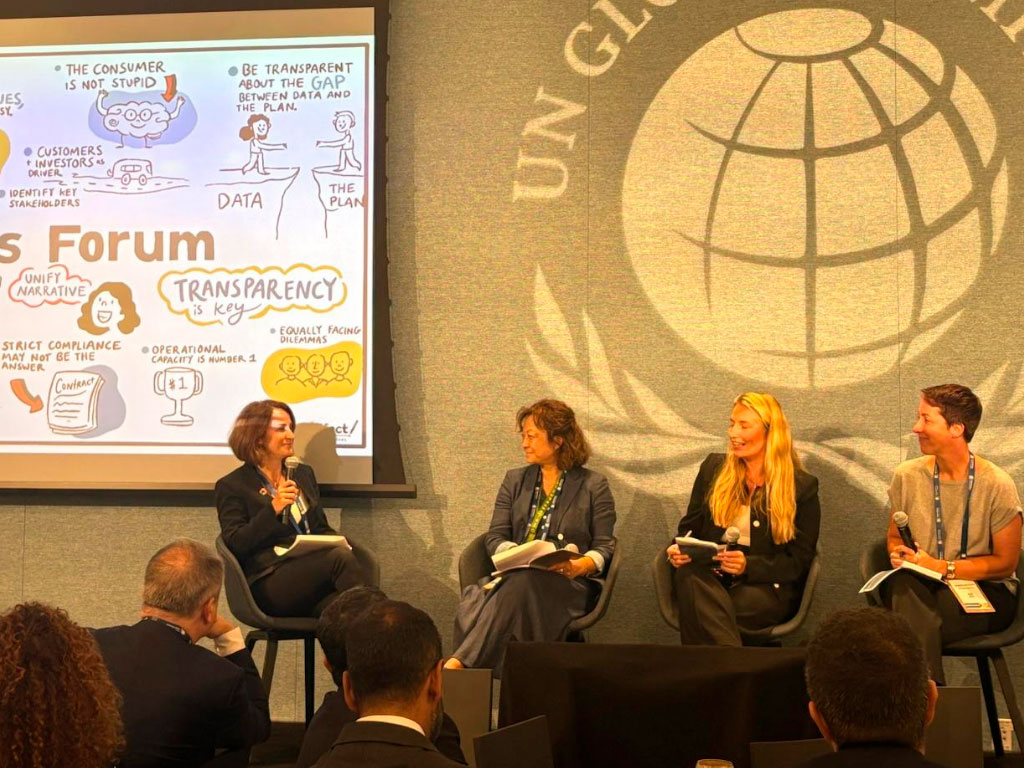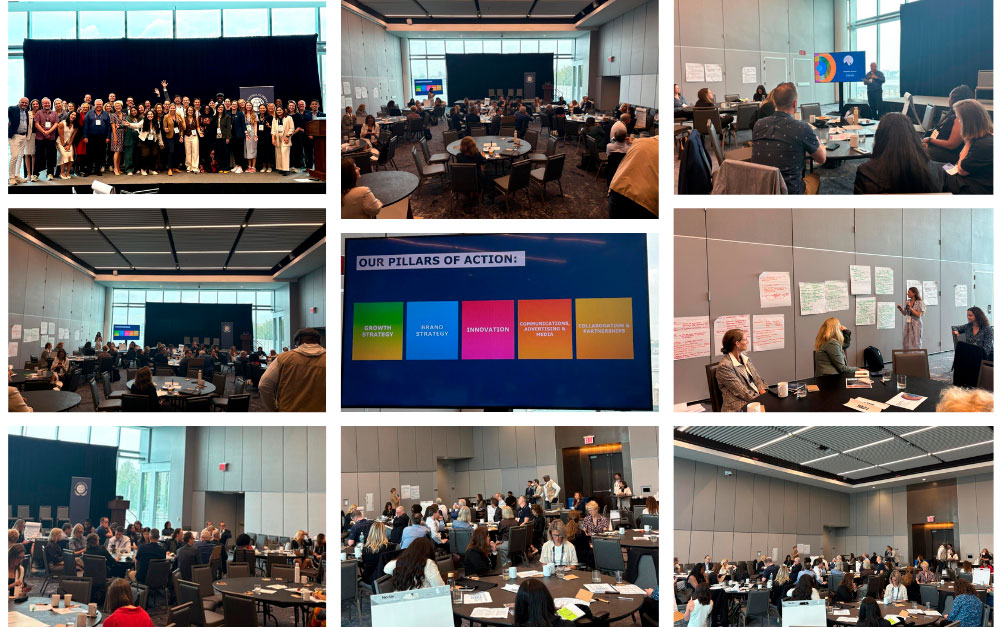New York Climate Week (NYCW) feels like drinking from a firehose. Nearly 1,000 events pulsating with palpable energy, from the UN Global Compact Leaders’ Summit to the Nest Climate Campus and to the World Business Council for Sustainable Development (WBCSD) Council Meeting. Big-hitting, inspiring content emanating from every corner of NY’s five buzzing boroughs.
From Commitments to Real Action
The red thread throughout was ‘we don’t need more promises, we need delivery’ - the urgency felt different this year.
Sanda Ojiambo, Assistant Secretary-General of the UN Global Compact, reminded us that only 35% of the Sustainable Development Goals (SDGs) are on track. The annual financing gap stands at nearly $4 trillion, and Goal 15 (Life on Land) has officially crossed a planetary boundary, joining six others already in dangerous territory.
In parallel, the UNGC Leaders’ Summit stressed that business must translate its voluntary sustainability pledges into credible transition plans, with transparent reporting and accountable governance, especially in preparation for COP30 in Belém. Peter Bakker, CEO of the World Business Council for Sustainable Development, echoed this urgency: “COP30 must be the COP of implementation — where business shows up with solutions and the barriers to scaling them.”

The Credibility Gap: Rebuilding Trust
One of the strongest themes was the credibility gap — the disconnect between what companies promise and what they actually deliver. According to BCG, 70% of companies plan to increase investments in decarbonisation, yet only 13% disclose their full emissions. Kantar’s Sustainable Marketing 2030 (SM2030) study, in partnership with the World Federation of Advertisers, finds that 90% of marketers agree sustainability agendas need to be more ambitious, only 40% claim to do well in integrating sustainable impact in day to day and 35% in investment decision making. Similarly, the UK’s Transition Pathway Initiative’s review of 2,000+ companies found that while many have 1.5°C targets, most lack credible transition plans to achieve them.
The result? A trust deficit — with investors who want reliable data, with governments who need to know business is on the case, and with society, which is tired of corporate greenwashing.
Kantar’s Sustainability Sector Index data suggests 52% of consumers believe companies distribute misleading or false information about their sustainability efforts. The commercial consequence is clear. Kantar's data shows a 0.9 point correlation between perceived greenwashing and rejection of a given brand, product, service.

There are efforts to close the gap. The UN Global Compact’s Communication on Progress (CoP) has been modernized and over 13,800 companies are already using the updated CoP to track performance, increase transparency, and demonstrate accountability to stakeholders. The WBCDSD’s Corporate Performance and Accountability System (CPAS) is helping progression too. But credibility won’t come from frameworks alone. It requires embedding transition plans into corporate strategy, disclosing them and reporting progress openly.
Co-operation and Collaboration
Tackling climate, nature, and inequality requires new forms of cooperation — from pre-competitive partnerships to multi-stakeholder initiatives. This is obvious: no organization can tackle these challenges alone. Programs like the UNGC Forward Faster initiative, alongside other efforts to develop common frameworks and shared understanding, illustrate how collaboration can generate systemic impact.
In the UNGC Dilemmas Forum, trust was again the currency of positive collaboration, determining the pace, depth and scale of impact. Without trust, partnerships stall; with it, they unlock the creativity, risk-taking and innovation needed to drive real systems change.

At the UNGC CMO Action Lab (a Kantar/UNGC initiative), marketing and sustainability teams highlighted the differences in how they perceive the potential of sustainability for both business and society. Co-operating to bridge these perspectives is essential to align agendas, scale solutions across the value chain and unlock the growth opportunities inherent in sustainable transformation.

Innovation at Scale, For All
Innovation is certainly the catalyst, but scaling it through finance, governance, value chains and stakeholder collaboration is what turns ambition into impactful growth opportunities.
At the UNGC CMO Blueprint for Sustainable Growth Action Lab, the guidance was clear: marketing must think and design with all value chain stakeholders in mind. This enables organisations to design whole solutions that deliver benefits for everyone impacted - from suppliers and employees to customers and communities.
The UNGC and Kantar co-led CMO Action Lab brought together senior leaders from marketing, sustainability, and their broader ecosystems to reflect on the marketing industry’s gaps and brainstorm potential solutions, including initiatives that could be pursued collaboratively across the industry.
These industry gaps were highlighted in the early findings of the UNGC Sustainable Growth Benchmark Survey, also co-led with Kantar. The survey hints at what’s to come in the full report this December: stark differences between how executives and middle managers view sustainability, and gaps between marketing and other functions. The central point is clear: sustainability isn’t a side campaign — it’s a growth agenda. Marketing must expand its role across the value chain and beyond the consumer, not only to inspire behaviour change but also to rebuild trust.
Both António Guterres and Sanda Ojiambo emphasised that innovation must focus on redesigning systems for resilience, tackling climate, nature and inequality together. Scale, rather than silos.
Circularity naturally emerged as part of these discussions, with Peter Bakker announcing that at COP30, WBCSD will launch the Global Circularity Protocol to help companies and governments embed circular models at scale. The task now is to make circularity the default logic of growth.
Evolving Finance for Scale
Financing is what makes this scale possible. From blended finance structures to SDG-linked bonds, the conversation has shifted from “is this viable?” to “how do we scale responsibly?”
Through the UNGC Forward Faster initiative, companies have already reported more than $31 billion in SDG-aligned investments across climate, gender equality, living wages, water resilience and sustainable finance. Mobilising finance in this way helps create innovative solutions that can transform entire value chains and systems.

From Promises to Proofs
With only 35% of SDGs on track and credible corporate transition plans remaining scarce, the urgency cannot be understated. With it, thankfully, comes hope, from the UNGC, WBCSD, Climate Nest, Action Speaks and all the participating organisations, sharing clear evidence of initiatives turning ambition into scalable action.
Data from the WBCSD Business Barometer validated the momentum: 91% of business leaders have maintained or increased net-zero transition investments over the past 12 months; 95% have maintained or increased short-term emissions targets, and 96% their long-term targets.
Peter Bakker’s closing words still echo:
“This is not the time to cut back. This is the time to lead. This is not a moral issue anymore. It’s a business imperative.”
And as Sanda Ojiambo reminded us, sustainability is not a trade-off between purpose and profit. It is the foundation of competitiveness, resilience, and growth.
Marketing case is clear and demanding urgent change and action. Kantar’s Brand Z data shows that sustainability perceptions can add up to 10% to the value of the world’s top 100 brands, representing a $600 billion opportunity for those who lead on sustainability.
That conviction, mixed with restless optimism, continues to resonate purposefully and relentlessly since New York. The problems are immense - but so is the momentum.
Click here to complete the Sustainable Growth Benchmark Survey - and get your results!



